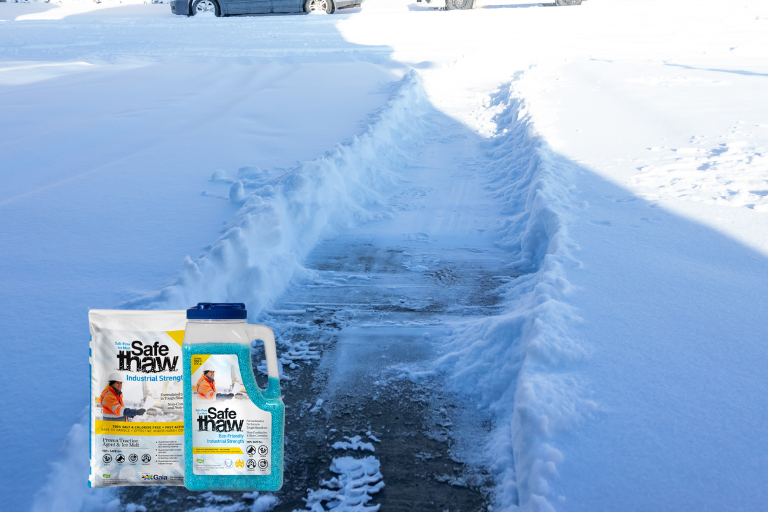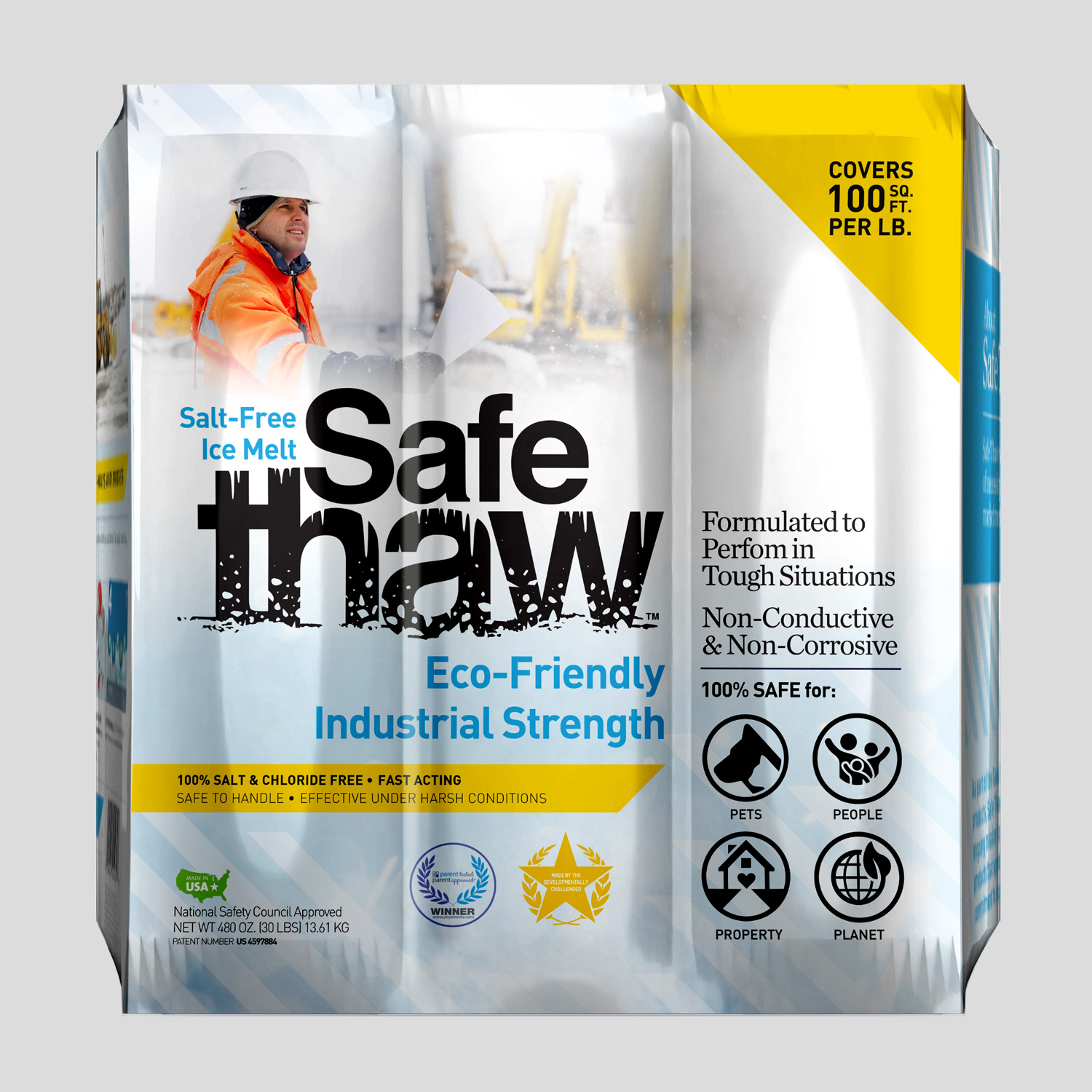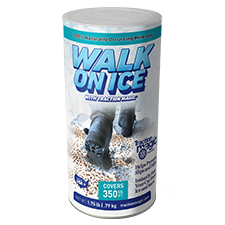How Thick Should a Concrete Driveway Be?

I remember the time I decided to give my old, crumbled driveway a facelift. Amidst the whirlwind of planning, the burning question emerged: just how thick does this concrete need to be? Sounds simple, but there’s quite the debate. Let’s unravel this mystery surrounding the ideal concrete thickness for driveway projects and set the record straight once and for all.

Safe Thaw
Safe Thaw was created as the ice management solution for tough winter environments. Ideal in commercial and industrial properties, shops, government agencies, bridges, and construction.
Getting The Foundations Right
How thick should a concrete driveway be? Any seasoned builder will tell you: it’s not just about the visible top layer. The secret sauce lies in what’s underneath. So, before you start picturing your dream driveway, let’s understand the basics.
For regular passenger vehicles, a driveway thickness of 4 inches is standard. But if you’re expecting heavier loads, like trucks or RVs, aiming for 5-6 inches is wiser. Remember, the thicker the concrete, the stronger the support, but also the higher the cost.
Factors That Influence Thickness
You might be tempted to just go with the standard 4 inches and call it a day. However, several elements might persuade you to adjust that number:
- Soil Type: If you’re building on sandy soil, 4 inches might suffice. But on soft clay? You’d want to ramp that up for added stability.
- Driveway Usage: As mentioned earlier, if you’re expecting more than just your family SUV to grace the driveway, invest in some extra inches.
- Climate: In areas with frequent freeze-thaw cycles, a thicker slab helps combat potential damage. Nobody wants those pesky cracks popping up after the first winter!
- Maintenance Matters.
Here’s the thing: even with the ideal thickness, driveways aren’t invincible. Wear and tear, especially in harsh weather conditions, can age your driveway faster than you’d like. Enter concrete resurfacing products. These gems can be a lifesaver when you notice the first signs of damage, ensuring your driveway remains in tip-top shape.
Safe Thaw To The Rescue
Speaking of harsh conditions, let’s talk winter. Ice and frost can be brutal to your driveway, and while it’s tempting to toss on any ice melt you find, I’ve got a word of caution. Many can be harsh, causing more harm than good. That’s where Safe Thaw shines. This chemical and toxin-free granular ice melt has been my winter companion, ensuring a slip-free driveway without causing damage. Plus, the peace of mind knowing it’s eco-friendly? Priceless.
100% salt & chloride-free, fast acting Ice Management Solution
The Verdict
Hope you’ve an idea on- how thick should a concrete driveway be. Driveways, much like our favorite recipes, require a balance of ingredients. While ensuring the right concrete thickness for your driveway is pivotal, it’s just one piece of the puzzle. Keep in mind factors like the local climate, soil type, and intended usage. Invest in quality materials from the get-go and have a robust maintenance plan in place.
To my fellow homeowners and DIY enthusiasts, as you embark on this concrete journey, remember that details matter. From the depth of the pour to the products you use post-installation, every decision plays a role in the lifespan of your driveway.
Stay vigilant, do your homework, and here’s to many years of smooth driveways ahead!
Try Also Our Other Winter Safety Products:
Safe Paw
The Original and #1 Selling Pet and Child Safe Ice Melt for over 20 years. Guaranteed environmentally safe –It won’t harm animals or children, and it won’t damage your property. That’s Safe Paw. Safe Paw can change how winter affects our planet.

Walk On Ice
The handy disposable canister can be taken everywhere, with the same 100% naturally occurring minerals that provide instant traction on ice or snow. Use it on sidewalks, steps, or as an instant traction agent for your car.



